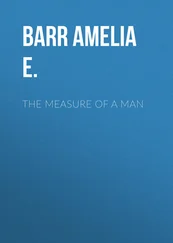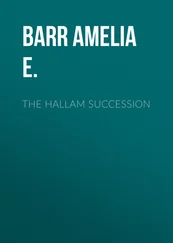Amelia Barr - The Paper Cap. A Story of Love and Labor
Здесь есть возможность читать онлайн «Amelia Barr - The Paper Cap. A Story of Love and Labor» — ознакомительный отрывок электронной книги совершенно бесплатно, а после прочтения отрывка купить полную версию. В некоторых случаях можно слушать аудио, скачать через торрент в формате fb2 и присутствует краткое содержание. ISBN: , Жанр: foreign_prose, на английском языке. Описание произведения, (предисловие) а так же отзывы посетителей доступны на портале библиотеки ЛибКат.
- Название:The Paper Cap. A Story of Love and Labor
- Автор:
- Жанр:
- Год:неизвестен
- ISBN:http://www.gutenberg.org/ebooks/50089
- Рейтинг книги:5 / 5. Голосов: 1
-
Избранное:Добавить в избранное
- Отзывы:
-
Ваша оценка:
- 100
- 1
- 2
- 3
- 4
- 5
The Paper Cap. A Story of Love and Labor: краткое содержание, описание и аннотация
Предлагаем к чтению аннотацию, описание, краткое содержание или предисловие (зависит от того, что написал сам автор книги «The Paper Cap. A Story of Love and Labor»). Если вы не нашли необходимую информацию о книге — напишите в комментариях, мы постараемся отыскать её.
The Paper Cap. A Story of Love and Labor — читать онлайн ознакомительный отрывок
Ниже представлен текст книги, разбитый по страницам. Система сохранения места последней прочитанной страницы, позволяет с удобством читать онлайн бесплатно книгу «The Paper Cap. A Story of Love and Labor», без необходимости каждый раз заново искать на чём Вы остановились. Поставьте закладку, и сможете в любой момент перейти на страницу, на которой закончили чтение.
Интервал:
Закладка:
“Leave God to order all thy ways,
And hope in Him whate’er betide,
Thoul’t find Him in the evil days,
An all sufficient Strength and Guide.”
The words came fresh and wet with tears from every heart, and it was a five minutes’ interlude of that complete surrender, which God loves and accepts.
After a moment of intense silence, the preacher said, “We are met to-day to try and find out if hand-loom weaving must go, or if both hand-loom weaving and power-loom weaving have a chance for the weaver in them. There are many hand-loom weavers here present. They know all its good points and all points wherein it fails but they do not know either the good or bad points of power-loom weaving, and Mr. John Thomas Bradley has come to tell you something about this tremendous rival of your household loom. I will now introduce Mr. John.” He got no further in his introduction, for Bradley stepped forward, and with a buoyant good-nature said, “No need, sir, of any fine mastering or mistering between the Annis lads and mysen. We hev thrashed each ither at football, and chated each ither in all kinds of swapping odds too often, to hev forgotten what names were given us at our christening. There’s Israel Swale, he hes a bigger mill than I hev now-a-days, but he’s owing me three pence half-penny and eleven marbles, yet whenever I ask him for my brass and my marbles he says – ‘I’ll pay thee, John Thomas, when we play our next game.’ Now listen, lads, next Whitsunday holidays I’ll ask him to come and see me, and I’ll propose before a house full of company – and all ready for a bit of fun – that we hev our game of marbles in the bowling alley, and I’ll get Jonathan Hartley to give you all an invitation to come and see fair play between us. Will you come?”
Noisy laughing acceptances followed and one big Guisely weaver said, “He’d come too, and see that Israel played a straight game for once in his life.”
“I’m obliged to thee, Guisely,” answered Bradley, “I hope thou’lt come. Now then, lads, I hev to speak to you about business, and if you think what I say is right, go and do what I say, do it boldly; and if you aren’t sure, then let it alone: – till you are driven to it. I am told that varry few of the men here present iver saw a power loom. And yet you mostly think ill o’ it. That isn’t a bit Yorkshire. You treat a man as you find him, you ought to do the same to a machine, that is almost a man in intelligence – that is the most perfect bit of beauty and contrivance that man iver made since man himsen was fitted wi’ fingers and thumbs by the Great Machinist of heaven and earth.”
“What is it fashioned like, Bradley?”
“It is an exceedingly compact machine and takes up little room. It is easily worked and it performs every weaving operation with neatness and perfection. It makes one hundred and seventy picks a minute or six pieces of goods in a week – you know it was full work and hard work to make one piece a week with the home loom, even for a strong man. It is made mostly of shining metal, and it is a perfect darling. Why-a! the lads and lassies in Bradley mill call their looms after their sweethearts, or husbands, or wives, and I wouldn’t wonder if they said many a sweet or snappy word to the looms that would niver be ventured on with the real Bessie or the real Joe.
“Think of your old cumbersome wooden looms, so hard and heavy and dreary to work, that it wasn’t fit or right to put a woman down to one. Then go and try a power loom, and when you hev done a day’s work on it, praise God and be thankful! I tell you God saw the millions coming whom Yorkshire and Lancashire would hev to clothe, and He gave His servant the grave, gentle, middle-aged preacher Edmund Cartwright, the model of a loom fit for God’s working men and women to use. I tell you men the power loom is one of God’s latest Gospels. We are spelling yet, with some difficulty, its first good news, but the whole world will yet thank God for the power loom!”
Here the preacher on the platform said a fervent “Thank God!” But the audience was not yet sure enough for what they were to thank God, and the few echoes to the preacher’s invitation were strangely uncertain for a Yorkshire congregation. A few of the Annis weavers compromised on a solemn “Amen!” All, however, noticed that the squire remained silent, and they were “not going” – as Lot Clarke said afterwards – “to push themsens before t’ squire.”
Then Jonathan Hartley stepped into the interval, and addressing Bradley said, “Tha calls this wonderful loom a power-loom. I’ll warrant the power comes from a steam engine.”
“Thou art right, Jonathan. I wish tha could see the wonderful engine at Dalby’s Mill in Pine Hollow. The marvelous creature stands in its big stone stable like a huge image of Destiny. It is never still, but never restless, nothing rough; calm and steady like the waves of the full sea at Scarboro’. It is the nervous center, the life, I might say, of all going on in that big building above it. It moves all the machinery, it gives life to the devil, 1 1 The devil, a machine containing a revolving cylinder armed with knives or spikes for tearing, cutting, or opening raw materials.
and speeds every shuttle in every loom.”
“It isn’t looms and engines we are worrying about, Bradley,” said a man pallid and fretful with hunger. “It is flesh and blood, that can’t stand hunger much longer. It’s our lile lads and lasses, and the babies at the mother’s breast, where there isn’t a drop o’ milk for their thin, white lips! O God! And you talk o’ looms and engines” – and the man sat down with a sob, unable to say another word.
Squire Annis could hardly sit still, but the preacher looked at him and he obeyed the silent wish, as in the meantime Jonathan Hartley had asked Bradley a question, to partly answer the request made.
“If you want to know about the workers, all their rooms are large and cheerful, with plenty of fresh air in them. The weaving rooms are as light and airy as a bird cage. The looms are mostly managed by women, from seventeen to thirty, wi’ a sprinkling o’ married men and women. A solid trade principle governs t’ weaving room – so much work, for so much money – but I hev girls of eighteen in my mill, who are fit and able to thread the shuttles, and manage two looms, keeping up the pieces to mark, without oversight or help.”
Here he was interrupted by a man with long hair parted in the middle of the forehead, and dressed in a suit of fashionable cut, but cheap tailoring. “I hev come to this meeting,” he cried out, “to ask your parliamentary representative if he intends to vote for the Reform Bill, and to urge the better education of the lower classes.”
“Who bid thee come to this meeting?” asked Jonathan Hartley. “Thou has no business here. Not thou. And we weren’t born in Yorkshire to be fooled by thee.”
“I was told by friends of the people, that your member would likely vote against Reform.”
“Put him out! Put him out!” resounded from every quarter of the building, and for the first time since the meeting opened, there was a touch of enthusiasm. Then the squire stepped with great dignity to the front of the platform.
“Young men,” he said with an air of reproof, “this is not a political meeting. It is not even a public meeting. It is a gathering of friends to consider how best to relieve the poverty and idleness for which our weavers are not to blame – and we do not wish to be interrupted.”
“The blame is all wi’ you rich landowners,” he answered; “ivery one o’ you stand by a government that robs the poor man and protects the rich. I am a representative of the Bradford Socialists.”
Читать дальшеИнтервал:
Закладка:
Похожие книги на «The Paper Cap. A Story of Love and Labor»
Представляем Вашему вниманию похожие книги на «The Paper Cap. A Story of Love and Labor» списком для выбора. Мы отобрали схожую по названию и смыслу литературу в надежде предоставить читателям больше вариантов отыскать новые, интересные, ещё непрочитанные произведения.
Обсуждение, отзывы о книге «The Paper Cap. A Story of Love and Labor» и просто собственные мнения читателей. Оставьте ваши комментарии, напишите, что Вы думаете о произведении, его смысле или главных героях. Укажите что конкретно понравилось, а что нет, и почему Вы так считаете.












